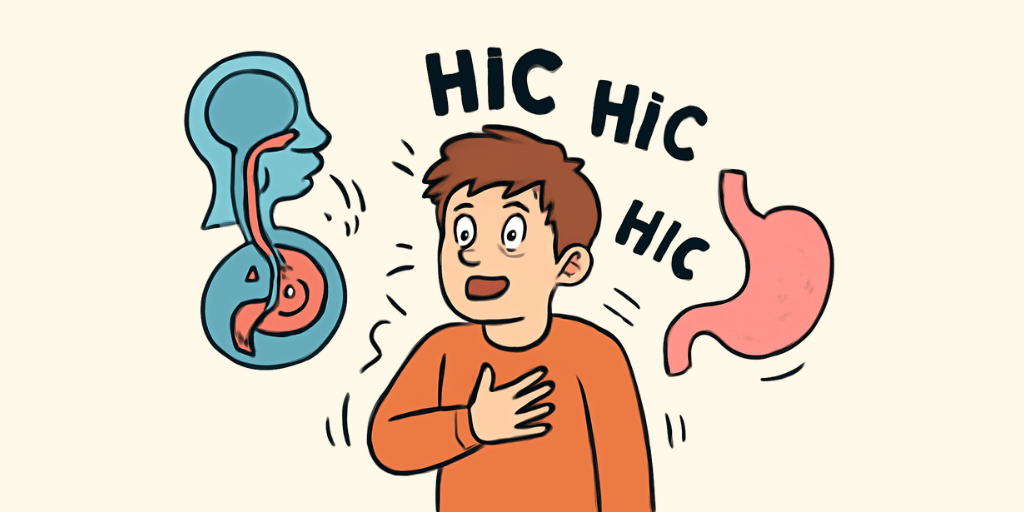Ayurvedic Name: Hikka
Description:
Hikka refers to chronic hiccups, which occur due to involuntary diaphragmatic spasms resulting from aggravated Vata and Kapha in the chest region. It may be triggered by excessive dryness, indigestion, respiratory congestion, or nervous system imbalances. Ayurvedic remedies include warm herbal teas, ginger, Pippali, and soothing oils applied to the chest to relax the diaphragm and restore normal breathing patterns.
Signs & Symptoms:
- Hikka (Chronic Hiccups): Repeated, involuntary contractions of the diaphragm leading to a characteristic “hiccup” sound.
- Trishana (Excessive Thirst): Increased thirst due to dehydration or irritation in the throat.
- Dourbalya (Weakness): Exhaustion after prolonged bouts of hiccups.
- Vishama Agni (Irregular Digestion): Digestive issues, such as bloating or gas, that may contribute to the hiccups.
- Rukshata (Dryness): Dryness in the throat or mouth, often linked to persistent hiccups.
- Shwasa (Breathlessness): Difficulty in taking deep breaths due to diaphragm spasms.
Diagnosis:
Observation and Patient History
Risk Factors:
- Dietary Factors
Excessive Alcohol or Carbonated Beverages: Alcohol, carbonated drinks, and spicy foods can irritate the diaphragm, leading to hiccups.
Overeating or Eating Too Quickly: Eating large meals or eating too quickly can cause the stomach to expand, leading to irritation of the diaphragm and subsequent hiccups. - Lifestyle Factors
Stress or Anxiety: Emotional stress or nervousness can trigger involuntary muscle contractions, leading to hiccups.
Sudden Changes in Temperature: Rapid changes in temperature, such as drinking a cold beverage after hot food, can irritate the diaphragm and trigger hiccups. - Medical Conditions
Gastroesophageal Reflux Disease (GERD): GERD causes stomach acid to irritate the diaphragm, which can lead to chronic hiccups.
Brain or Nerve Disorders: Conditions affecting the brain or nerves, such as strokes or brain injuries, can result in persistent or recurrent hiccups.
Complications:
- Fatigue (Dourbalya): Persistent hiccups can lead to fatigue and sleep deprivation, affecting overall health and daily functioning.
- Respiratory Distress (Shwasa Daurbalya): Continuous hiccups may cause difficulty breathing, particularly in severe cases, leading to shortness of breath.
- Esophageal Irritation (Griva Vikruti): Chronic hiccups can irritate the esophagus, leading to discomfort and difficulty swallowing.
- Dehydration (Trishna Kshaya): Prolonged hiccups can result in dehydration, as they may disrupt the normal intake of fluids.
- Psychological Stress (Manasik Dourbalya): Chronic hiccups can lead to frustration, stress, and embarrassment, affecting emotional well-being.
Epidemeology:
Occurs in less than 1% of the population, but can be a chronic problem for some individuals, especially those with neurological disorders, stroke, or gastric issues.
More common in older adults, particularly those with digestive conditions, stroke, or brain injuries.
Chronic hiccups lasting more than 48 hours occur in 0.1-0.2% of the population, typically in individuals with underlying conditions like cerebrovascular events or metabolic disorders.
Men and women are equally affected, but those with stroke, brain tumors, or central nervous system damage have a higher risk.

